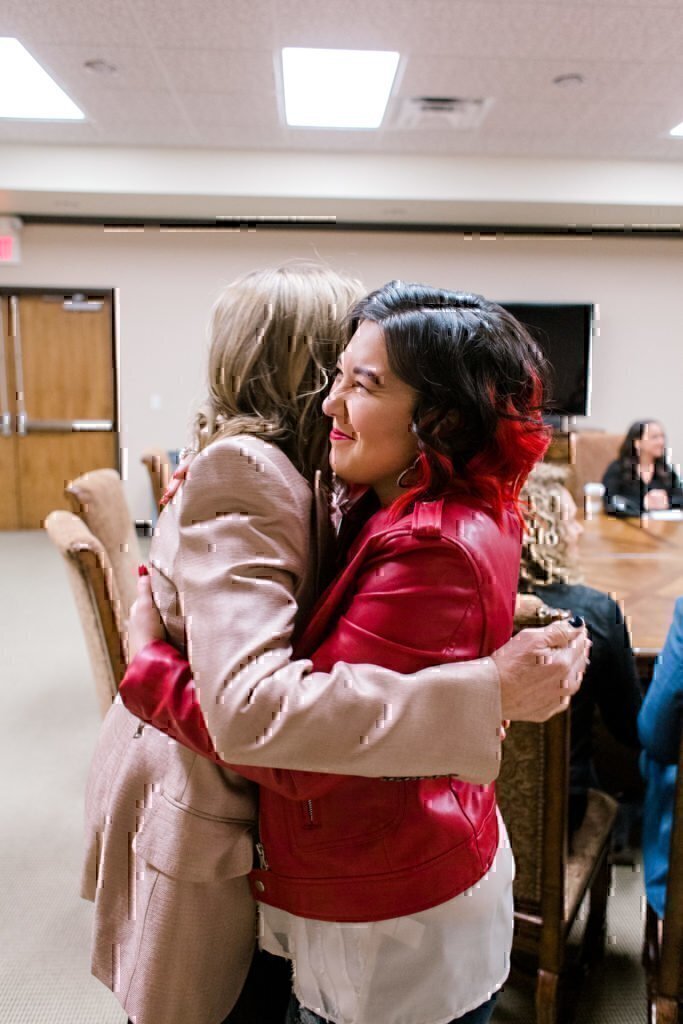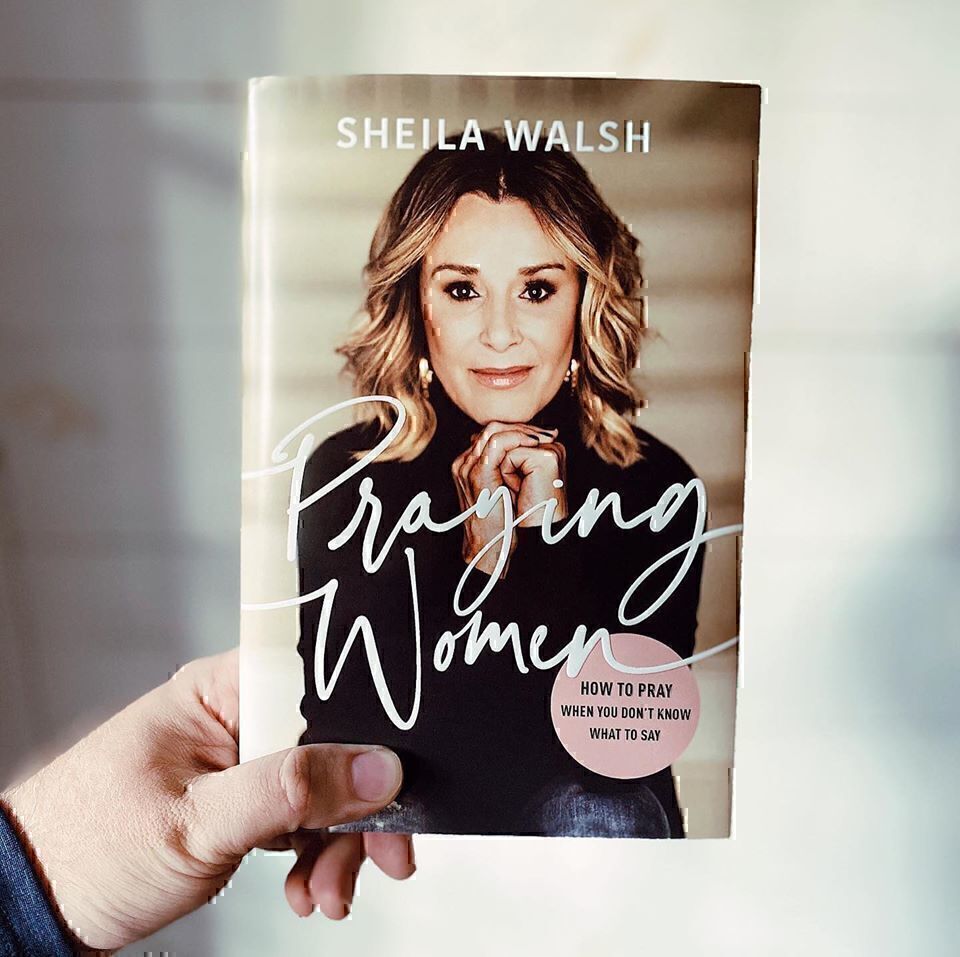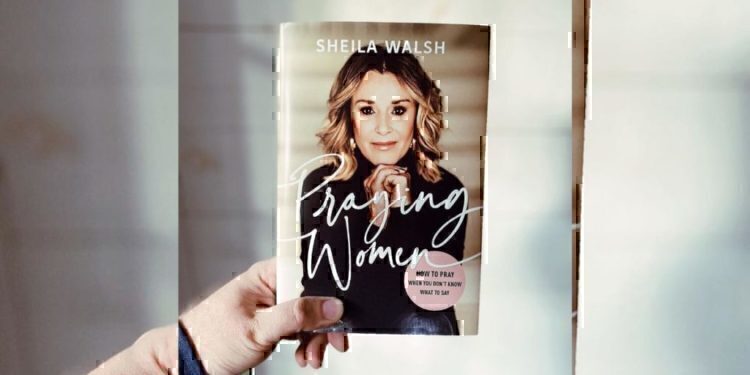The She Loves Out Loud interactive livestream wrapped on February 15th, 2020 and over one million women came together in churches, crisis pregnancy centers, military bases, chapels, and viewed online to pray.
Women all over the world are lifting their voices to give their petitions to God, asking for Him to heal marriages, hearts, broken pasts, and racial relationships. In addition to these things, women have committed to pray for our military community.

She Loves Out Loud is kick starting a grass roots movement that is sweeping our nation with prayer. At the forefront of this movement, among many amazing leaders, is Sheila Walsh.
Sheila Walsh, originally from Scotland, is a wife, mom, Bible teacher, and television host. She is a Christian author and speaker that has reached over 6 million women through teaching and speaking all over the world. Her books, It’s Okay Not to Be Okay, is a bestseller and her newest book, Praying Women, How to Pray When You Don’t Know What to Say, just released this February.

I had the privilege of serving with Sheila at She Loves Out Loud livestream event in Dallas, TX a few weeks ago. I met Sheila on a planning call in preparation for the live event. We shared our stories and prayed over one another and the upcoming livestream. I shared with her the difficulties of being a military spouse and presented some of the struggles men and women in our community are fighting daily- like the rising suicide statistics and the cost of loneliness. She was more than encouraging and had such a heart for caring for those in broken places.
She shared her story on the She Loves Out Loud livestream, but I wanted to share it here too. It made such an impact on me, and all those who were able to hear it.
When Sheila was a little girl, her father had a massive brain aneurism. This aneurism would change his personality. As Sheila tells the story, she says that, “He went from being a loving and kind father to an angry and confused stranger.” The last time she had ever seen her father alive, she was turning around just in time to see his cane coming down toward her skull.
Either she grabbed the cane or knocked him off his balance, but as a result, he swiftly fell down. As she looked down over him, all she could see was the unmistakable look of sheer hatred in his eyes. While she shares her testimony, I could see the pain welling up in her face. She vulnerably shared what was running through her mind. She said “What did I do to make my dad hate me so much?”
That day, he was taken to a local psych hospital. He was 34 years old.
Because of his progressing angry behavior, he was placed in the maximum-security area. Most of the men were older and had lost touch with reality. Her mother had petitioned the hospital to place him with men of his own age, and they did, but because it was minimally secured- he escaped. They searched all night for him, but to no avail. The next morning, they found that he had drowned himself in the river behind the hospital.
Back then, children were not taken to funerals. Sheila describes seeing her mother return home in a black dress, with a black hat on, and taking all of the pictures of her father down from around the house. She would place them in a brown suitcase, which she locked. She pushed it under the bed and he was never mentioned again.
“I think we know so much more these days about how to help children process pain. I think my mom thought, “If Sheila wants to talk, then I’ll let her start the conversation.” What she didn’t know was the shame that I grew up with, wondering ‘What was wrong with me?”
Sheila described the difference between guilt and shame. She gave the example of wronging a friend and apologizing. She said “Guilt says ‘I have done something wrong.’ Shame says ‘I am something wrong.”
Sheila grew up feeling like she had “brought the house down” on her family. When she was 11, her mom took her to see Scotland’s only gospel group and that night she gave her heart to Jesus. She was told that becoming a Christian would mean that Jesus would become her Lord and Savior, but that it also meant that she now would have a Father, watching over her in Heaven.
She remembers thinking, at 11, that she had one more chance to “get it right.” Whatever her earthly father saw that made him so angry, her Heavenly Father would not. So, she tried to be a “perfect Christian,” until it “almost killed [her].”
She had done all the right things. She went to seminary, worked with evangelists, and hosted evangelical television series for years.
“But” she says “Inside I was still that scared little broken girl who wouldn’t let anyone get close to her, in case you saw what my father saw.”
“I felt as if I lived at the edge of a volcano and the rumble was getting louder and louder. When you bury stuff from your past and you don’t deal with it, as my friend Ruth Graham says, ‘You bury it alive.’ It is still there.”
So, at 34, the same age as her father, Sheila collapsed and ended up at a psych hospital.
Sheila’s testimony is so powerful. With passion and gusto, she continues to live her life for The Lord. She discovered that God, in His great love and mercy, sent Christ to reconcile us all. She talks about how she trusts and believes God, in spite of the enemy that seeks to destroy us.
She has been diagnosed with severe clinical depression and says, “Every morning I take my little pill, with a prayer of Thanksgiving… God provides healing in many ways.”
Sheila talks about the stigma that is present in the church around mental illness. Too many times has the church been complicit in heaping shame upon people who struggle with mental illness- even to the point of implying that some one who is struggling has something ‘wrong’ with their spiritual life.
This cannot be further from the truth. God sees you, loves you, and wants you.
God is there during dashed dreams, discouraging diagnoses, and at the death beds held within our hearts. He is ever present in the dark places of our lives, even though it might not always feel like it. I hope that we would learn to believe it before we feel it.
If today, you feel isolated or buried underneath layers of shame, there is hope. Reach out to friend, or a local church. Share your story because there is also healing in the telling. Be brave and don’t “bury your past alive.” Find a counselor, a pastor, or a chaplain. You are worth it.

I love Sheila’s message of hope and her determination to leave no one behind. I share her story in hopes that you will be encouraged and seen. You can learn more about Sheila, her book, and her life’s mission here. In addition, if you purchase her new book, you can head over to her website for a free Bible study, exclusive videos, and resources.
Megan Brown is a seasoned military spouse and military missionary. She is the Military Liaison for the Speak Up Conference Global Missions Military Scholarship and the 2019-Armed Forces Insurance Robins AFB Military Spouse of the Year. She is passionate about military mission work and teaching and preaching about Jesus in and out of the local church. She lives in middle Georgia with her husband, Keith, and their energetic kiddos. She is a Bible teacher, speaker, and freelance writer. To learn more or connect with Megan, visit www.meganbbrown.com.








